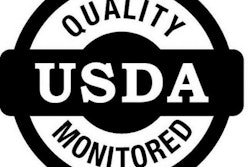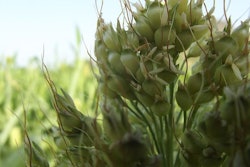
On Thursday, Secretary of Agriculture Sonny Perdue said the U.S. Department of Agriculture (USDA) “does not regulate or have plans to regulate plants that could otherwise have been developed through traditional breeding techniques as long as they are not plant pests or developed using plant pests.”
The National Grain and Feed Association (NGFA) issued a statement on plant breeding innovation, such as gene editing techniques, following Perdue's announcement.
“For grain handlers, grain processors and exporters, it is essential that the U.S. government exert strong and effective leadership in interacting with governmental authorities in other countries to urge adoption of science- and risk-based approaches to the regulatory treatment of plant breeding innovation so there is not a recurrence of the significant and costly international trade disruptions that occurred with some transgenic biotech traits,” said NGFA President and Chief Executive Officer Randy Gordon.
“Time is of the essence, and we have every reason to believe USDA will do its part within a coordinated and robust U.S. government outreach effort that also needs to involve the U.S. Food and Drug Administration and Environmental Protection Agency," he continued. "Engagement with these agencies’ governmental counterparts in U.S. export markets is critical in bringing about development of a coherent international regulatory environment that preserves the benefits and efficiencies of a commingled, fungible grain and oilseed supply chain, while enabling efficient, cost-effective trade to continue unabated.
“It also is fundamentally important that those developing and commercializing innovative plant breeding techniques accept their rightful responsibility to communicate proactively with consumers about the safety and benefits of these new plant-breeding techniques to foster consumer acceptance,” Gordon continued. “It also is incumbent upon plant breeders and the seed industry to be forthcoming with accurate and timely information about the specific innovative plant breeding techniques being developed for commercial use in food and feed crops – through a proactive, comprehensive advance notification and ongoing consultation process – to enable the grain and food industries to respond to commercial demand and inquiries from domestic and international customers and consumers.”
















